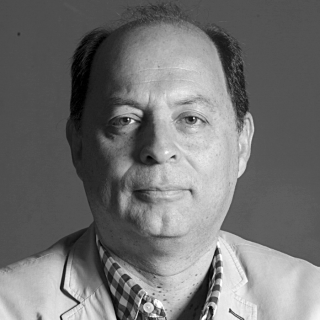
Journalism ceded some power to those it once dominated after 9/11
The 9/11 attacks left their mark on content production. Media websites collapsed and emerged a contender for journalists.
September 11, 2001 marked a turning point for journalism, for journalists. What followed the attacks against the Twin Towers meant the appearance of a new character on the information scene, and the precursor of today's 'prosumer.'
Before 9/11, journalists had the power to provide information to audiences that were practically passive in the consumption of content. Rarely in newsrooms was a photo or a video sent by a reader or viewer chosen for publication. Everything, practically everything, came from the work of editors, photojournalists, and cameramen.
That is until September 11, when CNN showed the world how one of the Twin Towers of the World Trade Center burned and shortly after, before the eyes of the viewers, a plane crashed into the other building. But what happened on the street, in the surroundings and inside the towers was known not only by the media, but also by people who were there, who took pictures and made videos they distributed from cell phones.
The Internet collapsed. Media websites around the world were blocked and had to resort to elementary home pages with a photo and a title because they could not withstand the massive influx of users who wanted to know more about what was happening in New York City.
On other occasions, it was journalists who were exclusively looking for eyewitness accounts of an event. Now, it was the witnesses who, of their own free will, quickly sent a graphic or audiovisual testimony of what happened. What occurred was an avalanche of testimonies that did not fit in the extraordinary editions of the newspapers.
RELATED CONTENT
Nothing was ever the same for journalism, nor for journalists. With the help of increasingly portable and versatile technology, the media and journalists experienced first-hand the emergence of thousands of content producers. Perhaps, September 11 was the impetus for the unbridled emergence of social networks, the new medium for informing and reporting. Journalism had ceded part of its power to those it had dominated.
Chilean professor Fernando Reyes Matta, a communications researcher, wrote in The Twin Towers and the New Dilemmas of Global Communication (2012) that: "What is new with respect to all previous conflicts, including the Gulf War, is that in this case the Internet became the source and information circuit for people's ideas. Not only the alternative media, with a smaller reach in the past, have gained their space of global circulation thanks to the Internet, but also the people have become potential subjects of information and opinion. Beyond the media is the voice of those who followed the forums in newspapers and on their own alternative sites. The network was a space for communication and citizen debate as never before with respect to a global conflict."
Thus, communication and, particularly, journalism, were not unaffected by the mark left by the terrorist attacks on the Twin Towers. Surely at another time, the reader, the listener and the viewer were going to take the power of information, but the attacks hastened what was calculated by those who have put the accelerator on technology since the appearance of the Internet.
Don't miss our special '9/11: 20 years, 20 stories.'











LEAVE A COMMENT: